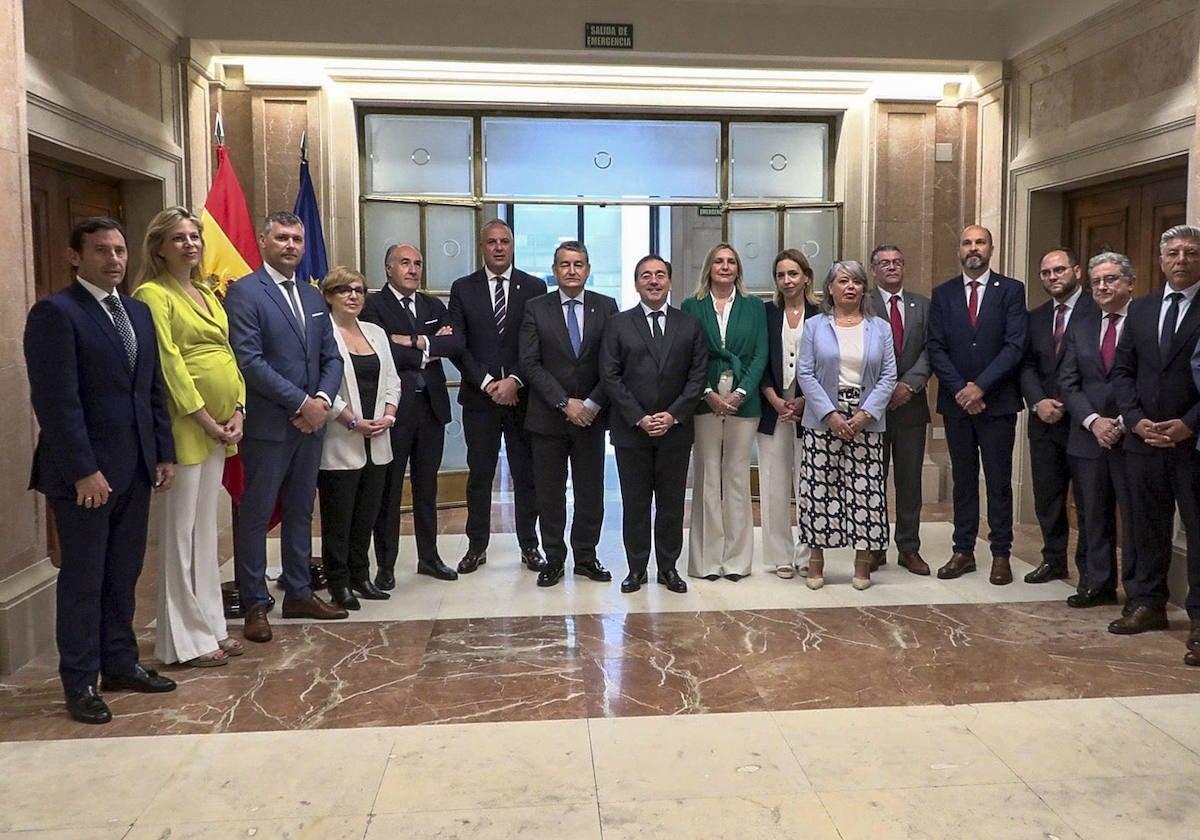

Sections
Highlight

La Línea's per capita income is barely over 11,000 euros. Gibraltar's is 90,000. Such an economic gulf between two territories separated by a border that could disappear in the near future, if the negotiations between the EU, Spain and the United Kingdom come to fruition, cannot be reduced if conditions are not established. With this argument, a delegation headed by regional minister Antonio Sanz and representatives of the town councils and the Mancomunidad del Campo de Gibraltar, visited Madrid on Monday.
The delegation had been summoned by the Spanish Minister of Foreign Affairs, José Manuel Albares, to inform them of the progress of negotiations with his British counterpart on the future of the British overseas territory after the United Kingdom's exit from the European Union.
There are several issues on the table that are of concern in the Rock's neighbouring municipalities, especially those related to how Gibraltar's new status will affect the transit of people, since some 15,000 Spanish nationals cross the border daily to work. But other issues are also being addressed in this complex diplomatic process, such as the possible shared use of the airport, the traffic of goods and border control itself.
The Junta has unsuccessfully appealed to article 240 of Andalucía's Statute of Autonomy, which enshrines its right to be informed and to request participation in treaties and conventions that directly affect it. "It is hard to understand why Gibraltar, which is not a sovereign state, participates in the negotiations at the invitation of its government and the Spanish government does not invite the Junta de Andalucía to participate, which was the case in previous stages," said Sanz.
Likewise, the Andalusian government has requested, also without obtaining a satisfactory response so far, that a special tax status be applied to the Campo de Gibraltar region that would allow it to compete on equal terms with the Rock. The fear is that the possible removal of the border, if the negotiations are successful, far from attenuating the economic gap between the two territories, will widen it. "Gibraltar has a 10 per cent corporate tax rate and Spain has a 25 per cent rate," Sanz pointed out after taking part in the meeting with Albares.
"We are facing a unique opportunity," said the regional minister after the meeting, when he added that the Junta wants "an agreement but not just any agreement", stressing that a pact cannot be reached behind the backs of the municipalities in the area.
For his part, José Manuel Albares stated that the agreement on Gibraltar being negotiated between Brussels and London will guarantee the rights of both current and future cross-border workers. "My main guide and objective in all the negotiations is the defence and protection of their rights," he said after being asked about the future of the 15,000 cross-border workers who come to the Rock every day and who represent, according to the minister, "more than 50% of the workforce".
The agreement will guarantee, said Albares, "the rights of the workers in Campo de Gibraltar, not only the current ones but also the future ones" and what is also sought is to make "their lives easier, to facilitate mobility when they travel to work and what has to do with the social aspects of their work".
The minister also pointed out that the future agreement will also cover the question of the entry and exit of British soldiers arriving at the port and military airport of Gibraltar to Spain, although he did not want to go into details. "It is one of the things we are talking about" and any aspect relating to this will be "perfectly controlled and defined".
Publicidad
Publicidad
Publicidad
Publicidad
Esta funcionalidad es exclusiva para suscriptores.
Reporta un error en esta noticia
Comentar es una ventaja exclusiva para registrados
¿Ya eres registrado?
Inicia sesiónNecesitas ser suscriptor para poder votar.